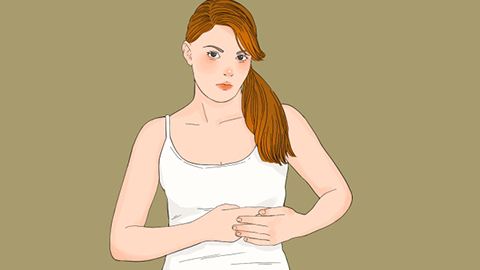What causes delayed menstruation?
Menstruation refers to the menstrual cycle. Delayed menstruation may be caused by poor lifestyle habits, pregnancy, polycystic ovary syndrome, hypothyroidism, endometritis, and other factors. Management can be based on the specific situation. It is recommended to visit a hospital promptly and follow medical advice for treatment.

1. Poor lifestyle habits: Long-term late nights, excessive dieting, and excessive mental stress can interfere with the endocrine system, leading to delayed menstruation. It is recommended to adjust your schedule, ensure 7-8 hours of adequate sleep each night, maintain a balanced diet, and consume various nutrients to avoid excessive dieting.
2. Pregnancy: In women of childbearing age who have had sexual intercourse without effective contraception, once the sperm combines with the egg and implants, the hormonal levels in the body change, and the endometrium no longer sheds, leading to delayed menstruation. Use a pregnancy test stick or visit a hospital to confirm pregnancy. If pregnant, perform proper prenatal care and regular prenatal examinations.
3. Polycystic ovary syndrome (PCOS): Endocrine and metabolic abnormalities cause multiple small cysts in the ovaries, characterized by infrequent menstruation or amenorrhea, hirsutism, and obesity. Patients can take medications such as dydrogesterone tablets, letrozole tablets, and bromocriptine mesylate tablets under medical guidance to alleviate symptoms.
4. Hypothyroidism: Insufficient secretion of thyroid hormone due to autoimmune disorders, surgery, or other causes leads to a slower metabolic rate, affecting the endocrine system and causing delayed menstruation. Symptoms may also include cold intolerance, fatigue, drowsiness, and weight gain. It is recommended to use medications such as levothyroxine sodium tablets, thyroid tablets, and hydrocortisone tablets under medical guidance to relieve discomfort.
5. Endometritis: Infection of the endometrium by pathogens causes inflammation, which affects normal growth and shedding of the endometrium, resulting in delayed menstruation, often accompanied by lower abdominal pain and abnormal vaginal discharge. Patients can take medications such as metronidazole tablets, cefixime capsules, and gynecological Qianjin tablets according to medical advice to improve symptoms.
In daily life, relieving mental stress through exercise, meditation, or talking with friends can help restore a normal menstrual cycle.
References:
[1] Liu Dongmei, Wang Jiejie, Zhang Jinling, et al. Relationship between serum adrenocorticotropic hormone, anti-Müllerian hormone, sex hormones, and pregnancy outcomes in infertile patients with polycystic ovary syndrome. Chinese Journal of Women and Children's Health, 2025, 40(04): 680-683.
[2] Liu Xiaohong, Zhang Yang. Effects of gynecological Qianjin tablets as an adjunct to ceftriaxone sodium and metronidazole injection on the treatment of endometritis and menstrual recovery. Northern Pharmacy, 2021, 18(02): 84-85.




